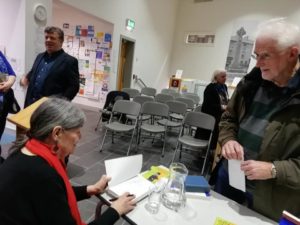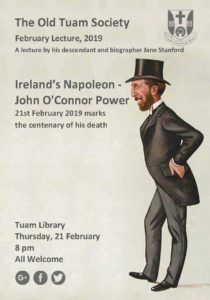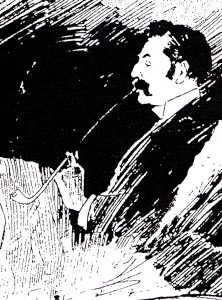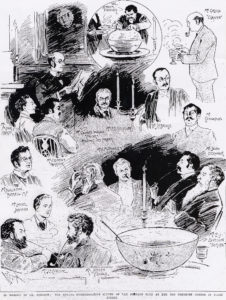In 1882 the National Liberal Club was established by William Ewart Gladstone. It was to be ‘a home for democracy’. In November 1884, O’Connor Power was present when the foundation stone for the new premises was laid on the Thames Embankment. The club house was opened in 1887 in time for Queen Victoria’s Jubilee celebrations.
Earlier the NLC was headquartered in Charing Cross where a radical clique met in the Vespers, a small smoking room. O’Connor Power, Thorold Rogers, Alfred Bennett, Fisher Unwin, and F W Chesson were members of the group and, in December 1884, were founding members of the Johnson Club. Fisher Unwin was married to Richard Cobden’s daughter.
In December 1885, the Manchester Guardian reported that O’Connor Power had successfully introduced weekly discussions on practical politics in the NLC. He continued to be an active member and, in the 1890s, he directed a political committee, organising functions and inviting speakers.
In May 1897, he addressed the Women’s National Liberal Association Conference in London on ‘Colonial Policy’.
In November 1898, he represented the NLC at the funeral of T B Potter, a Radical MP for Rochdale and founder of the Cobden Club.
In March 1909, he was the NLC guest speaker and his topic was ‘The House of Lords’. In May he spoke on ‘Adult Suffrage’.
In January 1912, he chaired a talk given by Tom Kettle to the NLC’s Political and Economic Circle.




